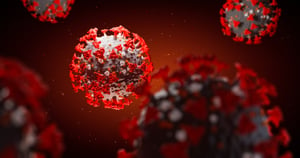COVID-19 News Roundup: Top Articles for Physicians and Hospital Admins
There’s no shortage of news covering the COVID-19 pandemic, and it can be difficult to identify the most relevant stories.
To help, here are a few highlights from top headlines:
Nationwide Run on Disinfecting Agents Leaves Diabetics Searching for Rubbing Alcohol
The coronavirus panic has led people to hoard necessary items such as toilet paper, hand  sanitizer, masks, and other pandemic essentials. But the latest item to disappear from store shelves could have a grave impact on the diabetic community.
sanitizer, masks, and other pandemic essentials. But the latest item to disappear from store shelves could have a grave impact on the diabetic community.
Rubbing alcohol and disinfectant alcohol swabs are essential to disinfecting the skin before injection, and insulin-dependent diabetics must inject themselves in order to maintain blood sugar. The inability to procure alcohol or alcohol swabs is frightening to many Type 1 diabetics already at heightened risk for COVID-19.
But, because hand sanitizer is nearly impossible to find, many Americans have resorted to making their own — or simply using rubbing alcohol in its place. But, like many necessary products, the sudden increased demand for rubbing alcohol has created a shortage, putting those with diabetes and other chronic conditions at even greater risk.
Makers of isopropyl alcohol have prioritized hospitals and nursing facilities in an effort to slow the spread of the coronavirus. Pharmacies and grocery stores are beginning to limit the purchase of alcohol swabs and rubbing alcohol to reduce hoarding.
Source:
Kaiser Health News
White House Recommends Cloth Masks
The great mask debate is over as the Centers for Disease Control and Prevention (CDC) finally released its stance and encouraged all Americans to wear cloth masks in public to help curb the spread of the virus. The CDC also says healthy individuals should use cloth masks and leave the professional-grade N95 masks for medical personnel.
This latest recommendation reflects ongoing concerns that asymptomatic individuals are driving the rapid spread of the disease, which is one possible explanation for the inability of the U.S. to yet see a flattening of the curve in the spread of coronavirus.
White House response coordinator, Dr. Deborah Birx, is cautioning people not to assume any additional protection is afforded them by wearing a mask. Dr. Birx is concerned a false sense of security may give certain individuals reason to relax such preventative measures as social distancing, hand-washing, touching the face, and, most especially, sheltering in place.
In short: Everyone should wear masks if they must go in public, but the best prevention is to simply stay home.
Source:
New York Times
Adults Anxious to Visit Healthcare Providers Unless it is For COVID-19 Symptoms
A survey found that the majority of adults are reluctant to visit their healthcare providers unless it's for symptoms of COVID-19. 62% of respondents said it was unlikely that they would go to a hospital, 64% wouldn't go to a specialist, and 65% would avoid walk-in clinics.
Source:
4200 Ventilators Have Been Delivered to the National Stockpile
General Electric, Medtronic and other companies have begun delivering thousands of ventilators to the Strategic National Stockpile. Demand for ventilators was less than anticipated, but may increase as stay-at-home restrictions are eased.
Source:
Phone Hygiene Could Reduce Coronavirus Spread in Healthcare Settings
Mobile phone hygiene combined with proper hand hygiene could play a significant role in limiting the spread of COVID-19 in healthcare settings, a new study suggests. Mobile phones are one of the most highly touched surfaces, and many healthcare workers use phones to keep up to date on the latest news, research drug interactions, conduct telemedicine appointments and much more.
Source:




